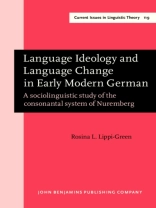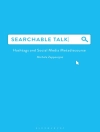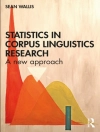This quantitative study, based on a computerized corpus of texts written by five men in early 16th-century Nuremberg, employs multivariate GLM statistical procedures to analyze the way linguistic, social and stylistic factors work individually and in interaction to influence variation observed in the texts. Over 70, 000 tokens of variable consonants sets were analyzed, using network analysis as an alternate approach to quantification of relevant social identities, which allowed focus on individual behavior without discarding the analysis of group behaviors. The study provides evidence that consonantal variation in early modern written texts is not random. To a surprising degree, it is possible to account for the structured heterogeneity in the writings studied by using methodologies established for spoken language in modern day communities. Like spoken languages, variation precedes change in the written language, and again like spoken language, not all variation is followed by change. That is, while variation cannot always be demonstrated to be structured, much of it is clearly and reliably attributable to the same complex of linguistic, social and stylistic factors which shape the structured heterogeneity of spoken languages of our own time. Of particular importance is the quantification of an individual’s relationship to an emerging ideology of language standardization, and the way that relationship interacts with written language variation.
Lippi-Green Rosina L. Lippi-Green
Language Ideology and Language Change in Early Modern German [PDF ebook]
A sociolinguistic study of the consonantal system of Nuremberg
Language Ideology and Language Change in Early Modern German [PDF ebook]
A sociolinguistic study of the consonantal system of Nuremberg
ซื้อ eBook เล่มนี้และรับฟรีอีก 1 เล่ม!
ภาษา อังกฤษ ● รูป PDF ● หน้า 164 ● ISBN 9789027276704 ● สำนักพิมพ์ John Benjamins Publishing Company ● การตีพิมพ์ 1994 ● ที่สามารถดาวน์โหลดได้ 3 ครั้ง ● เงินตรา EUR ● ID 4231329 ● ป้องกันการคัดลอก Adobe DRM
ต้องใช้เครื่องอ่านหนังสืออิเล็กทรอนิกส์ที่มีความสามารถ DRM












